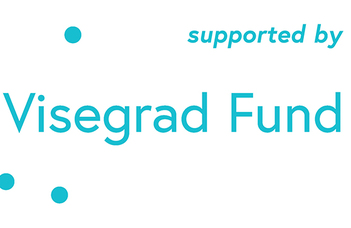The aim of the project is to provide openly accessible knowledge about the family name stocks of the V4 countries.
Personal names preserve information about cultures and societies. The common history of the V4 region resulted in similarities in our personal name stocks. For example, occupational family names (e.g. ‘smith’ CZ Kovář, HU Kovács, PL Kowal, SK Kováč) or ethnonymic ones (e.g. those meaning ‘Hungarian’, ‘Czech’, ‘Polish’, ‘Slovak’) are typical of all the four countries. Moreover, there are Slavic names in Hungary (e.g. Novák, Petrovics) and Hungarian names in the three Slavic countries of the V4 region (e.g. Nagy, Horváth). Similarly, our first name stocks contain equivalents due to common religious-cultural sources and to borrowing. Since family names are hereditary, recognising their origins helps to understand our common history. Moreover, our personal names are part of our national identities. However, reliable scholarly information about names rarely appears in school or even university curricula, while the constantly growing body of misleading information is available on the book market and on the Internet. This is a problem with registration, too: errors of registration may offend the name bearers’ national identities, similarly to incorrect addressing in international communication (e.g. confused male and female names or the inverted order of first and family names).
The main results of the project will be an online family name dictionary of the four languages and an online university course.
About the online dictionary of family names of the V4 countries
The multilingual online dictionary of the most common surnames of the Visegrad Group countries is available here.
The dictionary covers the 200 most common surnames and their most common variants in each of the four countries. The available sources vary slightly from country to country, but are equally representative of the family name stocks of the given countries. The family names presented in the dictionary represent a significant proportion of the population of each country (Czechia: 20%, Hungary: 41%, Poland: 18%, Slovakia: 17% of the population).
The entries on the family names and the further content of the dictionary are available in English and the official language of the given country. The family names and their entries in the dictionary can be viewed and searched in various ways on the online platform.
Project leader:
HUNGARY
Department of Hungarian Historical Linguistics, Sociolinguistics and Dialectology
Budapest, Hungary
Project coordinator:
Members:
Kitti Hauber PhD student
Project partners:
CZECH REPUBLIC
Czech Academy of Sciences
Praha, Czech Republic
Czech Academy of Sciences
Czech Language Institute
Department of Onomastics
Czech Academy of Sciences
Czech Language Institute
Department of Language Cultivation
POLAND
Poznan, Poland
Members:
Faculty of Modern Languages and Literatures
Department of Language Policy and Minority Studies
Małgorzata Rutkiewicz-Hanczewska
Karolina Galewska PhD sudent
Adam Mickiewicz University
SLOVAKIA
Nitra, Slovakia
Members:
Constantine the Philosopher University in Nitra
Faculty of Central European Studies
Institute for Teacher Training
Constantine the Philosopher University in Nitra
Faculty of Central European Studies
Institute of Hungarian Linguistics and Literary Science
Online demonstration of the project
Nominarium: a cyclical onomastic online seminar of the Polish Onomastic Society and the Department of Onomastics of the Institute of Polish Language, Polish Academy of Sciences
29th February 2024
Zoom: https://us02web.zoom.us/j/86976838084?pwd=TW9KZjg1RHlBZFdidTJiK0RuYmlzZz09
Meeting identifier: 869 7683 8084
Access code: 116471
Language of the seminar: English
Program
The dictionary will be presented to the public in an online workshop in English on 22 March.
The organisers welcome all interested parties.
The Dictionary of Family Names in the Visegrad Countries
Introduction of an international online onomastic dictionary
22 March 2024, 2:00 p.m.
Online: MS Teams
Meeting identifier: 386 770 577 80
Access code: 55GcrZ



